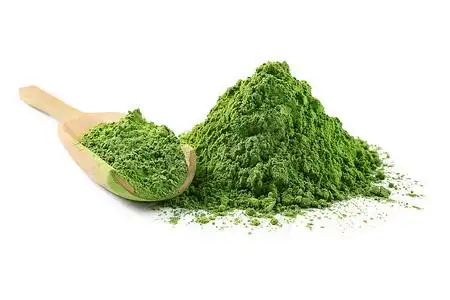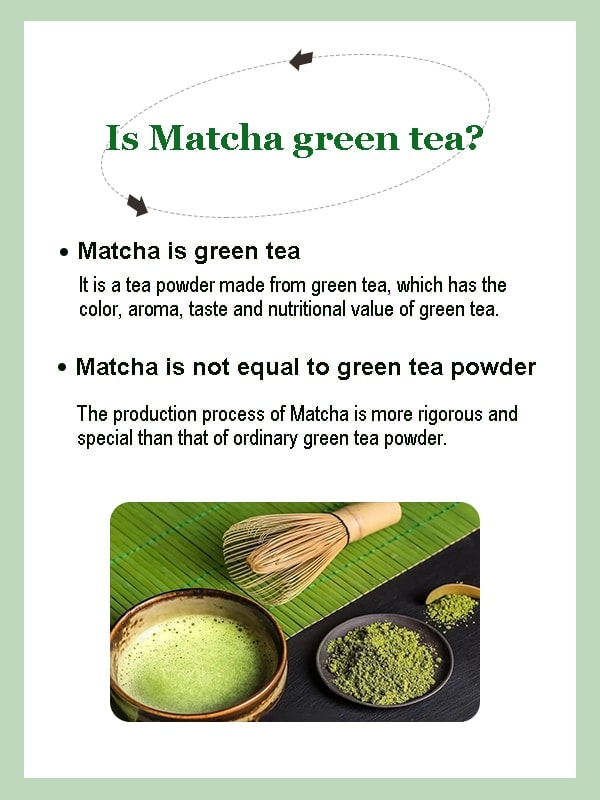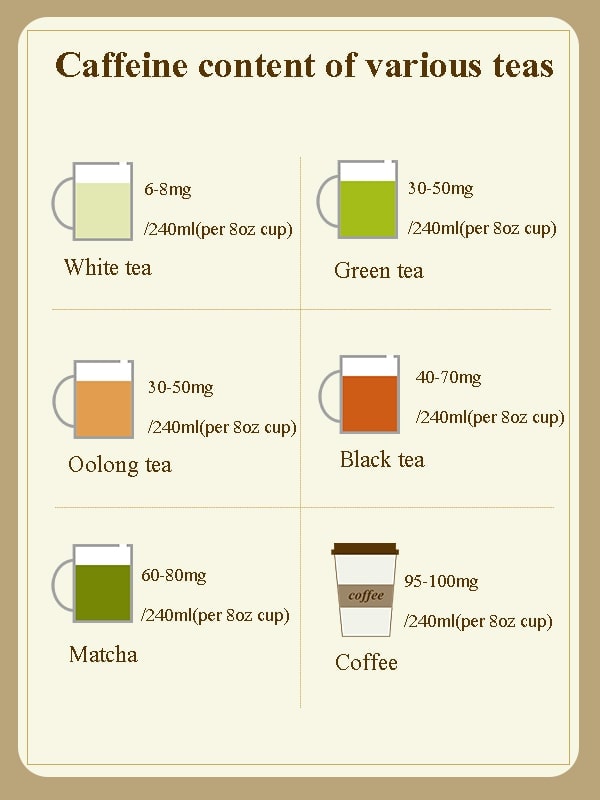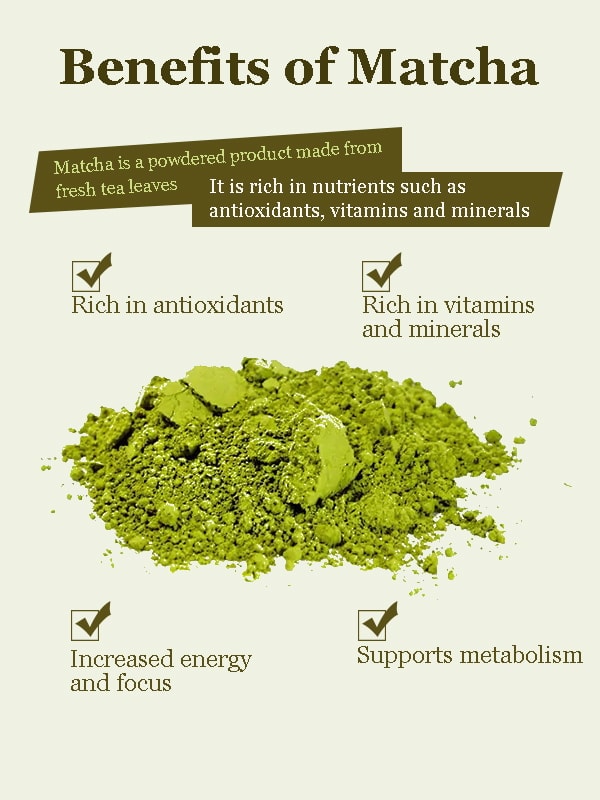
Matcha vs Green Tea: Key Differences, Health Benefits, and Which Is Better
钱多福Share
Discover the key differences between matcha vs green tea, including taste, health benefits, and caffeine levels. Learn which one is better for your lifestyle and wellness goals.
What is Matcha? Is Matcha green tea?

Yes, matcha is a type of green tea, but it’s prepared and consumed differently from regular green tea. Both matcha and green tea come from the camellia sinensis plant, but the cultivation and processing methods set them apart.
Matcha is made from specially grown and shade-covered tea plants, which enhances the nutrient and amino acid content of the leaves. The leaves (called tencha) are then stone-ground into a fine powder, resulting in matcha powder—a concentrated form of green tea powder made from powdered leaves. This powdered green tea is different from traditional steeped tea because you consume the entire tea leaf in matcha form, increasing your intake of beneficial plant compounds, antioxidants, and nutrients.
Matcha is known for its vibrant color, high amino acid content, and unique umami flavor, which sets it apart from other green teas. The traditional way to prepare matcha involves making matcha by sifting the powder and whisking it with hot water using a bamboo whisk, highlighting the ritual aspect of the process.

What is the difference between matcha and green tea?
Is Green Tea and Matcha the Same?
Not exactly. Matcha is a type of green tea, but not all green tea is matcha. Matcha is a powdered green tea made from the entire tea leaf, unlike other green teas which are typically steeped and then discarded. Matcha powder is consumed by whisking it into water, allowing you to ingest the whole leaf and benefit from its higher antioxidant and caffeine content. Think of matcha as a more concentrated, powdered version with unique preparation and stronger effects.
Key Differences Between Matcha and Green Tea
Matcha and green tea come from the same plant—Camellia sinensis—but they’re processed and consumed differently. Matcha powder is made by grinding shade-grown green tea leaves into a fine powder, known as powdered leaves, which you whisk into water and drink entirely, consuming the entire tea leaf. Regular green tea, including green tea powder and other green teas, is brewed by steeping dried leaves in hot water and then discarding the leaves.
Key differences include:
- Caffeine: Matcha has more caffeine per serving.
- Antioxidants: Matcha delivers more because the whole leaf is consumed.
- Amino acid content: Matcha has a higher amino acid content, especially L-theanine, due to the shade-growing process.
- Flavor: Matcha has a distinctive umami flavor that is richer and more vegetal, while green tea is lighter and grassy.
- Preparation: Matcha powder uses powdered leaves and the entire tea leaf, while green tea powder and other green teas do not.
Matcha vs Green Tea: Which Has More Caffeine?
When comparing matcha vs green tea, one of the most noticeable differences is their caffeine content. Matcha's caffeine content is significantly higher than that of regular green tea powder, making it a popular choice for those seeking a stronger energy boost. If you’re looking for an energy boost or trying to limit your intake, understanding how much caffeine each contains is essential.
1. How Much Caffeine Is in Matcha?
Matcha contains significantly more caffeine than regular green tea. Because you consume the entire leaf in powdered form, matcha delivers a stronger dose: matcha's caffeine content is higher because matcha powder is made from finely ground whole tea leaves, not just an infusion. This means you get more caffeine and antioxidants per serving.
- Matcha (1 tsp or ~2g): ~60–80 mg of caffeine
- That’s roughly the same as a small cup of coffee
This makes matcha a great choice for:
- Morning energy boosts
- Focus during work or study
- Pre-workout drink alternatives
2. How Much Caffeine Is in Green Tea?
Brewed green tea is much milder in caffeine, since you steep the leaves and discard them after brewing:
- Green tea (8 oz): ~30–50 mg of caffeine
- Ideal for those sensitive to caffeine or seeking a lighter option
Green tea powder, made from dried tea leaves, also contains less caffeine than matcha powder, making it a suitable choice for those who want the health benefits of green tea with lower caffeine content.
Green tea provides a gentle lift without the jitters and pairs well with afternoon relaxation or hydration-focused routines.Different types of green tea also contain different caffeine contents.
If you want more energy and focus, matcha is the stronger choice. But if you’re after a lighter, calming experience, green tea is the way to go.
For most adults, the FDA has cited 400 milligrams* a day — that's about two to three 12-fluid-ounce cups of coffee — as an amount not generally associated with negative effects. However, there is wide variation in both how sensitive people are to the effects of caffeine and how fast they eliminate it from the body.
Understanding the caffeine levels in different types of tea can help you make better choices based on your energy and wellness needs.

Matcha vs Green Tea: Health Benefits Compared
Both matcha and green tea are celebrated for their health-promoting properties and their potential health benefits, including supporting heart health, brain function, and weight management.
Research suggests that both teas contain natural compounds and plant compounds, such as antioxidants and amino acids, which may protect cells from oxidative stress and promote overall wellness, though more research is needed to confirm all their effects. Though they come from the same plant (Camellia sinensis), the way they’re grown, processed, and consumed leads to some notable differences in their benefits.

Here’s a side-by-side look at how each tea supports wellness, including the health benefits of matcha and the benefits of matcha and green tea consumption as part of a healthy lifestyle.
1. Antioxidant Levels
Both teas are rich in antioxidants, especially catechins like EGCG (epigallocatechin gallate), which are known for their anti-inflammatory and cell-protective effects. The natural compounds and plant compounds found in matcha and green tea help protect cells from damage and contribute to their potential health benefits.
- Matcha delivers a more concentrated dose of antioxidants because you consume the entire leaf in powdered form.
- Green tea, while gentler, still offers a significant antioxidant boost with regular consumption.
2. Caffeine and Mental Clarity
- Matcha contains more caffeine—about 60–70 mg per serving—compared to green tea’s 20–35 mg.
- Thanks to L-theanine, an amino acid found in both matcha and green tea, these teas promote a calm, alert state of mind, but matcha may offer a stronger and longer-lasting boost in focus. The presence of amino acids, especially L-theanine, works together with caffeine to support brain health and enhance brain function, improving mental clarity and cognitive performance.
This makes green tea a better choice for those sensitive to caffeine or seeking a more subtle effect.
3. Support for Metabolism and Weight Management
Both matcha and green tea have been studied for their role in supporting metabolism and aiding fat oxidation.
- These teas contain compounds that boost fat burning, which can provide potential benefits for weight management.
- Matcha’s higher caffeine and catechin content may offer a slight advantage in promoting calorie burn.
- Green tea can still be a gentle yet effective part of a healthy weight-loss routine when consumed regularly.
4. Digestive and Detox Benefits
- Green tea is often praised for being easier on the stomach and is commonly used for daily hydration and digestion support. Green tea extract, a concentrated supplement form, has been studied for its potential health benefits, including antioxidant support and protection against liver disease. Some research suggests that green tea extract may help reduce the risk of liver disease and support overall liver health, though caution is advised as excessive intake of green tea extract supplements can have adverse effects.
-
Matcha, being more concentrated, is rich in chlorophyll, which some studies suggest may aid in detoxification.
However, its strength means it may not be ideal for every digestive system, especially on an empty stomach.
By understanding the unique strengths of both teas, you can choose the one that fits your health goals—or enjoy both as part of a balanced tea routine.
Matcha vs Green Tea: Which Is Better?
Both matcha and green tea have earned a reputation for promoting health and wellness. While they share the same origin plant, Camellia sinensis, their processing methods and nutritional profiles differ—making each tea suitable for different needs.
1. Matcha: A More Potent Option for Energy and Antioxidants
Matcha is made from shade-grown leaves ground into a fine powder, meaning you consume the entire leaf. This results in:
- Higher caffeine content (60–70 mg per serving)
- A more concentrated source of antioxidants, especially EGCG
- A rich, bold flavor and vibrant green color
You can enjoy matcha in several ways. Making matcha tea involves sifting about a half teaspoon of matcha powder into a bowl, adding hot water, and whisking vigorously with a bamboo whisk or matcha whisk to create a smooth, frothy drink. For a creamy treat, prepare matcha latte by blending matcha powder with hot milk. Matcha powders can also be added to baked goods and other foods, such as smoothies, desserts, and breakfast bowls, for extra flavor and nutrition. Adding matcha to your daily routine is a versatile way to boost wellness.
You can find matcha at health stores, specialty grocery stores, or online, with options ranging from ceremonial to culinary grades depending on your intended use.
2. Green Tea: A Gentle Choice for Daily Wellness
Green tea is steeped and consumed as an infusion, offering:
- Lower caffeine levels (about 20–35 mg per cup)
- A lighter flavor profile
- Soothing properties that are easier on the stomach
Drinking green tea regularly has been linked to various health benefits, including reduced blood pressure, improved heart health, and a lower risk of chronic diseases. Scientific studies suggest that green tea consumption may also aid in weight loss and support liver protection. For those seeking a more concentrated source of antioxidants and health benefits, green tea extract is available as a supplement.
Green tea may be a better fit if you:
- Prefer a milder caffeine experience
- Enjoy sipping throughout the day
- Want a more traditional and gentle health beverage
👉 Interested in high-quality green tea? Explore our curated selection.
Conclusion:Neither tea is universally “better”—the right choice depends on your personal preferences and health goals. Many people enjoy incorporating both into their routines to get the best of both worlds.





